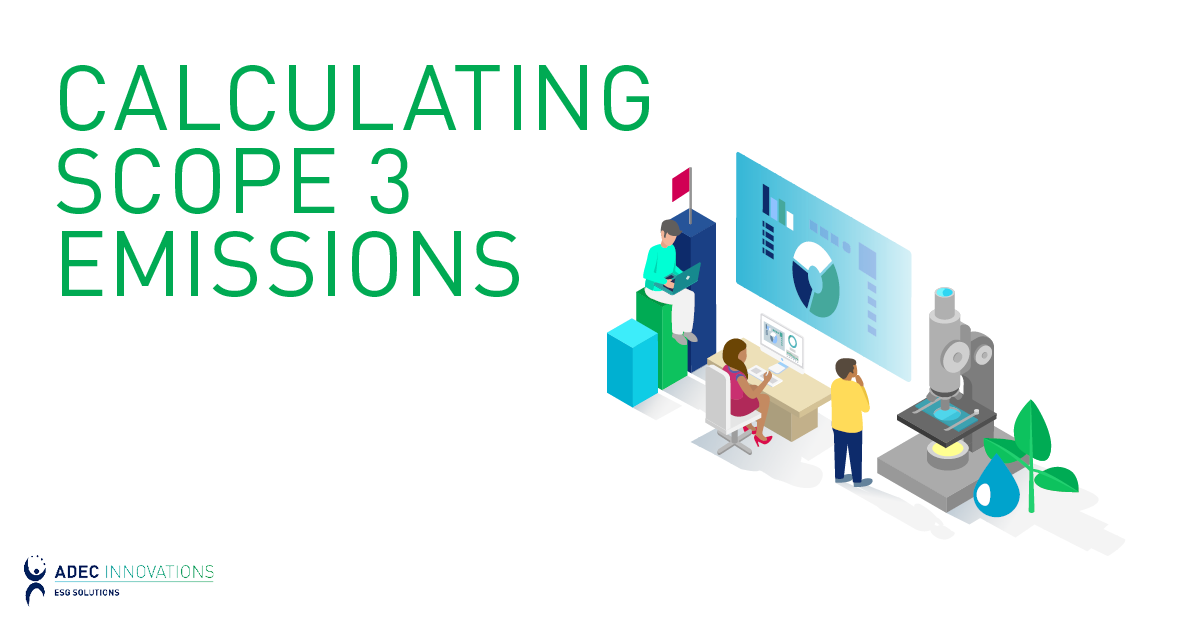More Time Means More Money: Why Every CDP Point Matters
Over the past two years, I have had the privilege of speaking with hundreds of companies who have participated in the CDP (formerly known as the Carbon Disclosure Project) Supply Chain program, and providing advice on how to improve CDP scores. Depending on a company’s situation, improving its score could be as simple as including more details, or it could be as intensive as implementing new strategies and processes. Regardless of the extent, improving a CDP score means spending extra time, and as the saying goes “more time means more money”. In my experience, many companies are reluctant to spend the additional costs upfront, but what they don’t know is improving their score pays off in the long term.
By Jeni Centner
January 29, 2014
Over the past two years, I have had the privilege of  speaking with hundreds of companies who have participated in the CDP (formerly known as the Carbon Disclosure Project) Supply Chain program, and providing advice on how to improve CDP scores. Depending on a company’s situation, improving its score could be as simple as including more details, or it could be as intensive as implementing new strategies and processes. Regardless of the extent, improving a CDP score means spending extra time, and as the saying goes “more time means more money”. In my experience, many companies are reluctant to spend the additional costs upfront, but what they don’t know is improving their score pays off in the long term.
speaking with hundreds of companies who have participated in the CDP (formerly known as the Carbon Disclosure Project) Supply Chain program, and providing advice on how to improve CDP scores. Depending on a company’s situation, improving its score could be as simple as including more details, or it could be as intensive as implementing new strategies and processes. Regardless of the extent, improving a CDP score means spending extra time, and as the saying goes “more time means more money”. In my experience, many companies are reluctant to spend the additional costs upfront, but what they don’t know is improving their score pays off in the long term.
Businesses who strive to improve their CDP scores gain advantages and can become a supplier of choice for multiple enterprises. “Green” suppliers are preferred by their clients for a myriad of reasons. Because these suppliers use less energy and resources for their products or services, they can offer competitive prices. Lower prices are advantageous for their clients since the clients then spend less per product. For the suppliers and their clients, the decreased costs from operations increase savings – savings that can be used for other purposes like capital infusion, infrastructure development, etc. At  the end of the day, this can ultimately lead to leaner operations and improved bottom lines for both parties.
the end of the day, this can ultimately lead to leaner operations and improved bottom lines for both parties.
CDP Members also turn to supplier reports to review price increases and may use these to justify increased costs. As one tobacco company reported: “When suppliers ask for price increases due to energy costs, we first turn to their CDP reporting history. We require reporting on energy and climate risk management before granting these increases unless there are exceptional circumstances.”
As companies continue to grow and their territories increase, so does the vulnerability of their operations. CDP reports that businesses that employ sustainable practices are more aware of the risks that climate change presents to their operations. With this awareness, firms are able to better prepare for the effects of such threats to their continuity. This, in turn, ensures the continuity of their clients’ operations, giving the suppliers an advantage over competitors.
Rachel Kyte, World Bank VP of Sustainable Development, said in a CDP report that the drought experienced by the US in the summer of 2012 had severe impacts on corn and soybean crops, with its effects trickling down to food prices. According to Time, a 10% increase in global food prices was seen after the drought. Imagine how this affects an enterprise that relies on these crops for supply – the business faces possible setbacks and even collapse. Livestock farmers were hit hard following the spike in feed costs, as those represent a large portion of production costs. Had the corn and soybean producers been more aware of this risk and able to plan ahead, clients who rely on them for materials could  have been better equipped to weather the challenge. This is a strong illustration of how climate issues affect a business or its supply chain. The more sustainable the supplier is, the better it is for a business’ operations and continuity. Because CDP Supply Chain Program members are more aware of these risks, they are better equipped to address issues along its supply chain.
have been better equipped to weather the challenge. This is a strong illustration of how climate issues affect a business or its supply chain. The more sustainable the supplier is, the better it is for a business’ operations and continuity. Because CDP Supply Chain Program members are more aware of these risks, they are better equipped to address issues along its supply chain.
Clearly, greener suppliers lead to leaner, more cost-effective and sustainable operations equipped to literally weather storms, droughts and other natural threats. Participating and excelling in the CDP Supply Chain Program can give suppliers a strong advantage to become the supplier of choice for clients. Clients, in turn, can rest assured that their businesses are better prepared against climate change-related threats. Taking part in the CDP Supply Chain Program can be beneficial for both parties, both in terms of safeguarding business continuity, and by forwarding end-to-end operations that have minimal impacts on the environment.
FirstCarbon Solutions (FCS), a CDP Gold Consultancy Partner and Silver Software Partner, has scored more than 7,000 Supply Chain disclosures globally. With its innovative tools and expertise, FCS can help companies improve their CDP disclosures. Our in-depth and insightful Performance Review, Response Check, Scoring Assessment, Gap Analysis, Data Collection and Disclosure Completion services clients can achieve improved CDP Scores and future environmental performance.
Related Articles
Environmental Impacts, Carbon Management
By Tyanna Bui on November 2, 2021
Carbon Management | GHG Emissions
By Adrienne Garcia on March 10, 2020
Environmental Impacts | Sustainability | Forests | Organization
By Kevin Bolland on December 23, 2019
Environmental Impacts | Environmental Assessments | CEQA | Environmental Planning | city planning
Be a sustainability leader.
Our team supports you no matter where you are on your Sustainability Journey. Talk to us today to learn more.





